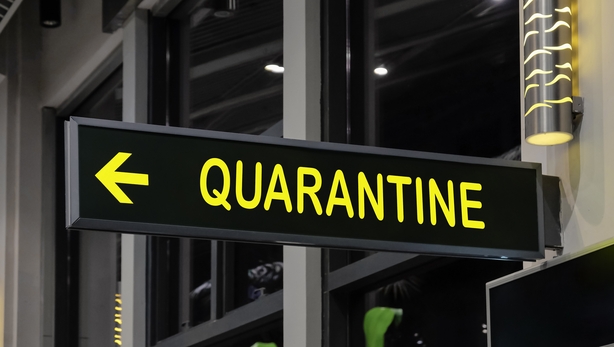The Department of Public Expenditure and Reform has confirmed that all 340,000 civil and public service employees who undertake non-essential foreign travel must use additional annual leave or pre-arranged unpaid leave to self-isolate for 14 days on return.
In a statement to RTÉ, the department said that throughout the pandemic, it had operated as a "unified, One Public Service".
"Accordingly, this requirement will apply to all public service employees in order to ensure equity of treatment between those who, due to the nature of their work, have been able to work from home during the crisis and those who have continuously attended the workplace throughout," the department said.
It noted that if an employee chooses to go abroad for non-essential travel, they are going against Government advice, "and essentially making themselves unavailable to their place of work".
The statement continues: "While employees may have been at home to date, working from home is not a right of employment, and as society and business reopens, employers will determine workplace attendance as necessary and in line with public health advice."
Asked whether employees who lost out on pre-booked holidays should be compensated for following Government advice, the department said: "With regard to reimbursement, travellers should contact their travel agent, airline or service provider to discuss their options."
Meanwhile ISME, which represents private sector small and medium enterprises, is advising member firms that as long as there is a required 14-day quarantine, there is no obligation to pay staff for that period.
However, ISME said that if there is a lifting of restrictions on travel to and from some areas from 20 July, then there would be an obligation to pay if the employer requires quarantine outside of the Government requirements.

If an employee has just returned from holidays, ISME advises that the employer can request the worker to stay at home for the 14-day period if it is felt necessary.
"Current Government and HSE guidelines state that any person entering the country from anywhere outside the island of Ireland is required to self-isolate for a period of 14 days.
"An employer is not obliged to pay an employee during a required 14-day self-isolation period. Employers can agree that further annual leave may be used to cover this period," ISME says.
Some employers have queried whether, if an employee intends to travel to a declared 'Green Zone', and isolation requirements are lifted, they can ask the worker not to return to work for 14 days.
ISME's advice is that employees can be asked not to return to work, and that would be deemed to be a "suspension on health and safety grounds".
However, it cautions that an employer should pay the employee during this time in order to avoid a claim under the Payment of Wages Act.
If it is possible for the employee to work from home during this period that can be put in place. If not, employees should be paid their normal weekly payment for the time.
"If an employee is advised by a GP or through the HSE guidelines to self-isolate they will be eligible for state financial aid, and the organisation's normal sick pay policy should be applied," said ISME.







